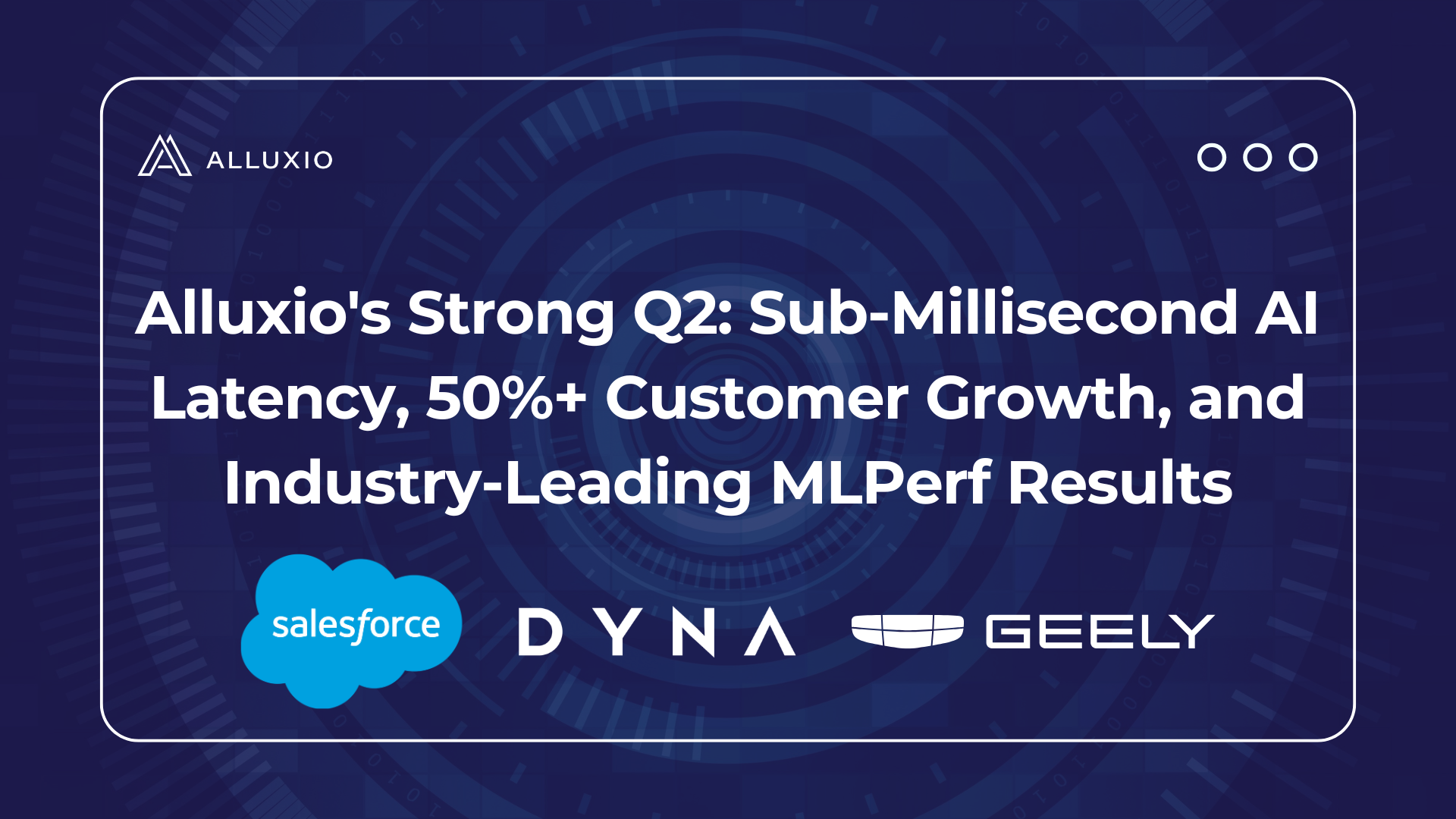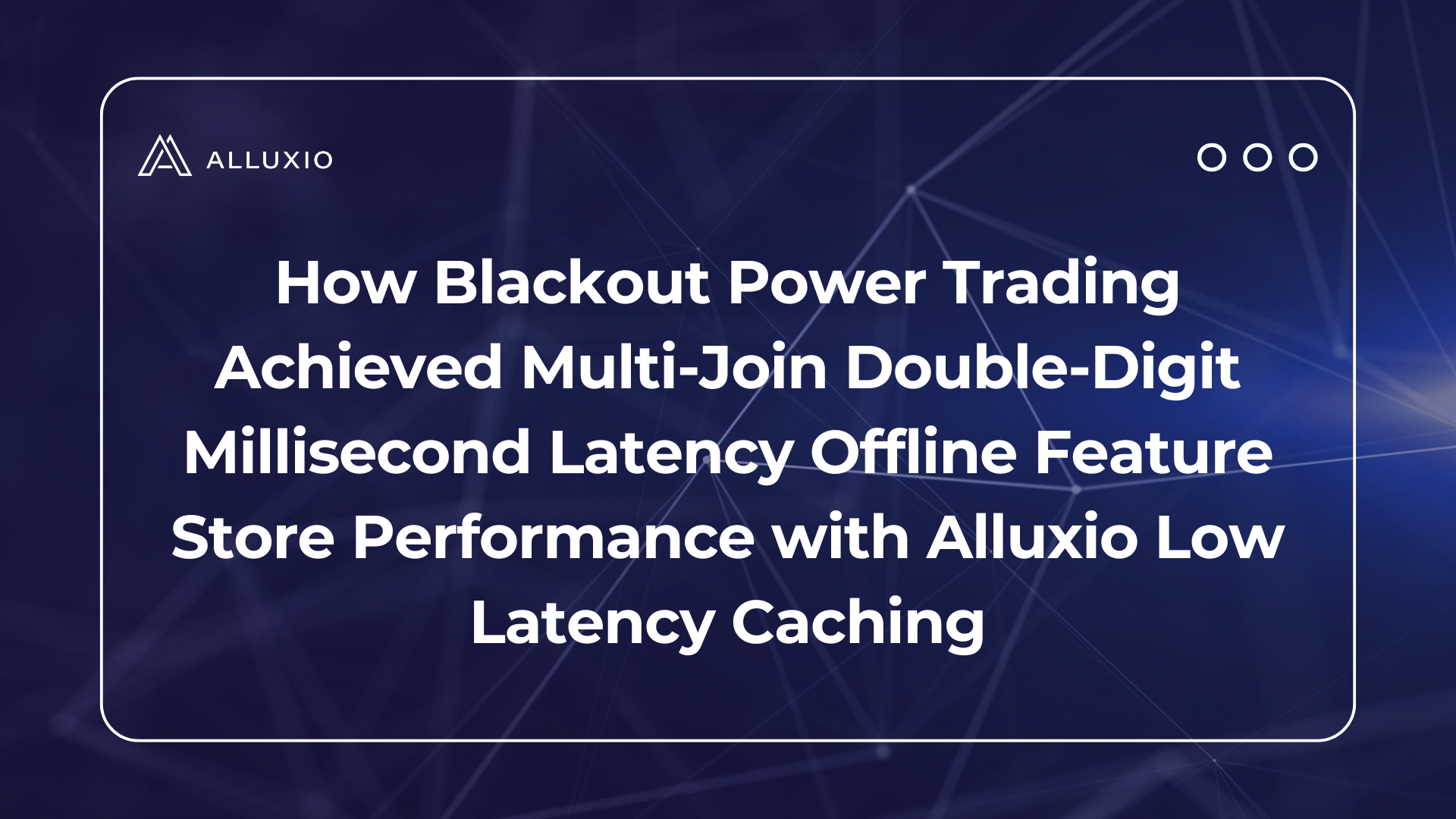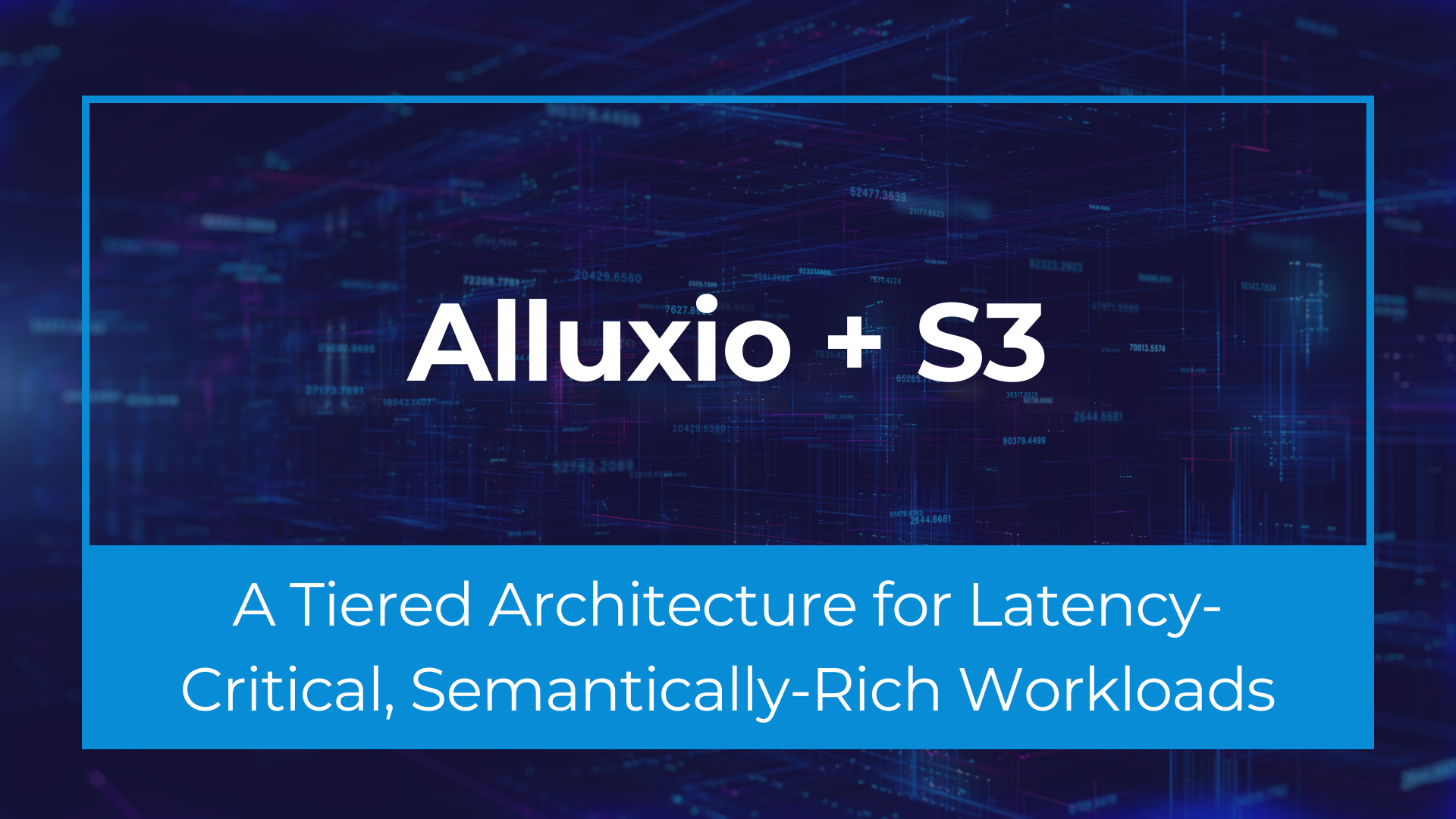Our mission at Alluxio is to unify data at memory speed. Today we’re excited to unveil our first products which enable organizations to turn data into value with unprecedented ease, flexibility, and speed. We believe our new products will substantially advance Alluxio for both the community and our enterprise customers. In this blog, I will share with you the big data challenges application developers and business line owners face today, and show how Alluxio addresses these challenges.
Enterprise Data Challenges Today
The proliferation of big data compute frameworks and data stored in the disparate storage systems that span devices, locations and even across public/private clouds has created a severe challenge to enterprises seeking to extract value from data. The resultant any to any communication between compute frameworks and storage systems is complicated and slow. Moreover, today’s high-performance applications demand real-time responses, driving the massive industry shift to memory-centric computing and storage. Without Alluxio, application developers and business line owners that want to turn their data into value need to manage the disparate storage systems in the application by either ETLing the data to one place (resulting in multiple copies of the same data and inefficient storage utilization) or in some cases not being able to extract the value at all due to regulatory restrictions. In addition, even if they are able to extract the value, the results are not available in real-time or near real-time thus providing less value to the business.
Why Alluxio
Alluxio connects any compute framework to disparate storage systems via a unified global file system namespace, and enables any application to access data stored on premise and in the cloud at memory speed. Alluxio uniquely provides all of the following:
- Unified data: Alluxio virtualizes data across different storage system under a unified global file system namespace, enabling new workflows across any data in any storage
- Memory speed performance: Alluxio is co-located with compute, provides memory speed access to data, and orders of magnitude improvement in runtime of jobs.
- Flexibility and cost-efficiency: Alluxio is a software only solution, and seamlessly integrates without any change to existing application. Alluxio allows organizations to grow compute and storage independently, buy only what is needed.
- Deploys anywhere: Alluxio can be co-located with compute cluster (for highest performance), or in a standalone cluster. Clusters can be on-prem, in the public cloud or in hybrid clouds.
Introducing Alluxio Products
After four years of research and development, starting as the Tachyon project at UC Berkeley’s AMPLab and continuing through substantial engagements with some of the world’s most innovative enterprises, today we are excited to offer the Alluxio product portfolio -- the most comprehensive, capable, tested and easy-to-use Alluxio to date.
Alluxio Community Edition (ACE)
Alluxio Community Edition is built on proven open source Alluxio software and is designed to give customers a package that is easy to install, manage and monitor. It supports a broad range of storage systems -- new and legacy -- and allows the most popular big data computational frameworks to access the data in those systems at lightning speed in memory. ACE is free for download.
Alluxio Enterprise Edition (AEE)
Alluxio Enterprise Edition includes everything in ACE plus critical enterprise features to help businesses be more successful. Alluxio Enterprise Edition allows companies that rely on Alluxio to get up and running faster and to run our system in production with 24/7 confidence. It lets customers meet more stringent SLAs, reduce administrative costs and eliminate risks by making their systems more transparent, easier to maintain and secure. It codifies the lessons that our company and our people have learned since 2012, designing, building and running Alluxio in production at global banks, giant e-commerce sites, leading telcos, major research institutes and technology companies. We have users across various vertical markets running Alluxio in production on clusters ranging from terabytes to petabytes, solving a broad range of important business problems. Our software, our services team and our support staff are standing by to help you get started. Contact us today.
Alluxio and the Community
Since co-creating the project four years ago, I've continually been overjoyed with and thankful for the amazing community that the Alluxio project has been blessed with. At Alluxio we are committed to and passionate about open source and the community that’s emerged around Alluxio. As the creators and top committers of the Alluxio open source project, we are dedicated to improving and promoting the project together in collaboration with the community. We’re very happy to share with you all the hard work we have invested in Alluxio. We’re unifying data at memory speed. This is an exciting new approach to compute at scale and unlock all the value in enterprise storage systems today.
.png)
Blog

Alluxio's strong Q2 featured Enterprise AI 3.7 launch with sub-millisecond latency (45× faster than S3 Standard), 50%+ customer growth including Salesforce and Geely, and MLPerf Storage v2.0 results showing 99%+ GPU utilization, positioning the company as a leader in maximizing AI infrastructure ROI.

In this blog, Greg Lindstrom, Vice President of ML Trading at Blackout Power Trading, an electricity trading firm in North American power markets, shares how they leverage Alluxio to power their offline feature store. This approach delivers multi-join query performance in the double-digit millisecond range, while maintaining the cost and durability benefits of Amazon S3 for persistent storage. As a result, they achieved a 22 to 37x reduction in large-join query latency for training and a 37 to 83x reduction in large-join query latency for inference.

